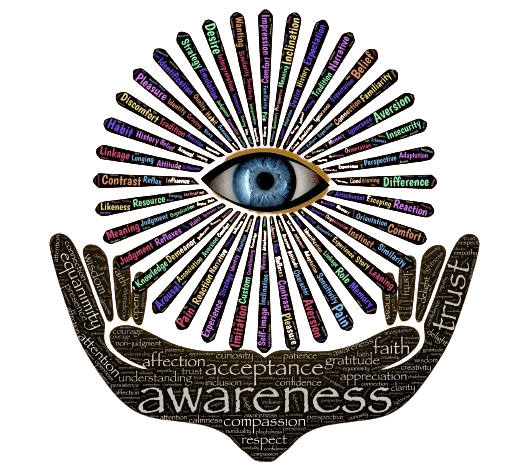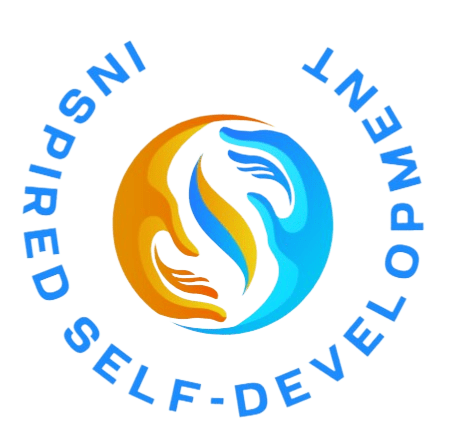Self-Awareness

Share:
The First Step on the Path to Self-Mastery: Embracing Self-Awareness
In the grand journey of self-mastery, the starting point is always Self-Awareness. It’s the dawn that precedes the day, the silence that speaks before the storm of transformation begins. Self-Awareness is not merely about knowing your likes and dislikes, but understanding the very core of your being—recognizing your thoughts, emotions, patterns, and the subtle nuances that make you uniquely you.
The Mirror of the Mind
Imagine Self-Awareness as a mirror, reflecting the innermost corners of your mind. It shows us not what we wish to see, but what truly is. In this reflection, we find the strengths we can build upon and the weaknesses we have the power to change. It’s about observing our reactions, understanding our triggers, and acknowledging our feelings without judgment.
The Roots of Growth
Understanding oneself is the soil from which the flower of growth blooms. Without self-awareness, personal development is like wandering in the dark, hoping to stumble upon enlightenment. By shining the light of consciousness on our inner workings, we illuminate the path ahead, making each step deliberate and each choice informed.
The Journey to Authenticity
Authenticity is the treasure we seek on this quest, and self-awareness is the map. It guides us through the layers of social conditioning, past the masks we wear, and towards the essence of our true selves. Authentic living means aligning your actions with your core values, making decisions that resonate with your true self, and expressing yourself genuinely in all aspects of life.
The Practice of Mindfulness
Cultivating self-awareness is an exercise in mindfulness. It’s about being present in the moment, observing your thoughts and feelings without getting swept away by them. Practices like meditation, journaling, and reflective solitude can serve as tools to deepen your self-awareness. They allow us to pause, reflect, and connect with ourselves on a profound level.
The Gateway to Empathy
By understanding ourselves, we open the door to understanding others. Self-awareness fosters empathy and compassion, as recognizing our own struggles and vulnerabilities helps us connect with the struggles and vulnerabilities of others. It bridges the gap between isolated selves, creating a foundation for genuine relationships and community.
Embarking on the Journey
The path to self-mastery begins with a single step: the decision to become self-aware. It’s a commitment to looking inward, to exploring the depths of your soul, and to facing the truths that reside within. This journey is not always easy, but it is always rewarding. For in the pursuit of self-awareness, we not only discover who we are but also who we have the potential to become.
Conclusion
Achieving self-awareness is a foundational step in the journey of self-mastery. It requires dedication, honesty, and a willingness to face oneself without judgment. By embracing the practices and principles outlined above, anyone can embark on this transformative journey, uncovering the depths of their being and unlocking their full potential. Remember, self-awareness is both the starting point and the path itself; it’s an ongoing process of discovery, reflection, and growth that enriches every aspect of your life.
10 Practical Steps to Cultivate Self-Awareness:
Journaling
Maintain a journal where you can regularly write about your thoughts, feelings, and experiences. Reflecting on your day, challenges, and successes can provide insights into your patterns of thinking and behavior.
Seek Feedback
Ask for honest feedback from friends, family, or colleagues. Others may offer perspectives that you might not see in yourself, helping you gain a more comprehensive understanding of your strengths and areas for improvement.
Embrace Challenges
Pay attention to how you react in challenging situations. Understanding your responses to stress or difficulties can provide valuable insights into your coping mechanisms and areas where personal growth may be needed.
Identify Patterns
Pay attention to recurring thoughts, emotions, and behaviors.
Identify patterns in your reactions to certain situations and explore the underlying reasons.
Mindfulness Meditation
Practice mindfulness meditation to stay present and observe your thoughts without judgment. This practice can help you become more aware of your emotions, reactions, and thought patterns.
Regular Self-Check-Ins
Schedule regular moments throughout the day to check in with yourself. Ask questions like “How am I feeling right now?” or “What thoughts are dominating my mind?” This habit promotes continuous self-awareness.
Read and Learn
Engage in literature and resources focused on self-awareness and personal development. Books, articles, and podcasts can offer different perspectives and tools to enhance your understanding of yourself.
Mind-Body Connection
Pay attention to the connection between your physical and mental well-being. Exercise, proper nutrition, and adequate sleep can significantly impact your mood, energy levels, and overall self-awareness.
Reflect on Your Values and Beliefs
Take time to identify and clarify your core values and beliefs. Consider what matters most to you in various aspects of your life, such as relationships, work, and personal development.
Identify Triggers
Pay attention to situations or people that trigger strong emotional reactions. Understanding your triggers can help you manage your responses more effectively.
Guided Exercises to Illuminate Your Values, Strengths, and Journey Within
- Exercise 1: Values Clarification
- Exercise 2: Strength Inventory
- Exercise 3: Daily Reflection Journal
- What Will Be Achieved With This Exercises:
Identify Core Values: Take a few moments to consider your core values—those principles that are most important to you.
List Your Top Five Values: Create a list of your top five values. These could be related to relationships, career, personal development, or any other aspect of life.
Reflect on Significance: Reflect on why each value is significant to you. What do they represent, and how do they guide your decisions and actions?
Alignment Check: Consider if your current lifestyle aligns with these values. If there are discrepancies, think about small adjustments you can make to bring them into harmony.
Reflect on Personal Strengths: Reflect on your personal strengths—qualities or skills that you believe you excel in.
List Your Top Five Strengths: Create a list of at least five strengths you possess. These could be related to communication, problem-solving, empathy, creativity, etc.
Reflect on Utilization: Consider how you’ve utilized these strengths in the past and how they contribute to your personal and professional life.
Leverage Moving Forward: Identify ways you can leverage these strengths more intentionally in future endeavors.
Allocate Daily Reflection Time: Set aside a few minutes at the end of each day for reflection.
Journal About the Day: Journal about the events of the day, your emotions, and any significant insights or challenges you experienced.
Identify Alignment Moments: Identify moments where you felt in alignment with your values and strengths, as well as moments that challenged your self-awareness.
Learn and Apply: Consider what you’ve learned about yourself through these reflections and how you can apply these insights moving forward.
Exercise 1: Values Clarification
Personal Discovery: Explore and identify the values that resonate most with you on a personal level.
Decision-Making Guide: Use your values as a guide for making decisions, both big and small, ensuring that your choices align with what truly matters to you.
Life Alignment: Assess the alignment between your current lifestyle and your core values, making adjustments as needed to live a more authentic and fulfilling life.
Exercise 2: Strengths Inventory
Recognize Personal Assets: Acknowledge and celebrate your strengths, understanding the unique qualities that contribute to your success and well-being.
Optimize Contributions: Leverage your strengths intentionally in various areas of your life, such as career, relationships, and personal development.
Boost Confidence: Reflecting on strengths can boost self-confidence and provide a positive foundation for tackling challenges.
Exercise 3: Daily Reflection Journal
Emotional Awareness: Develop a greater awareness of your emotions and how they influence your thoughts and actions.
Continuous Learning: Cultivate a habit of continuous learning from daily experiences, identifying patterns and areas for improvement.
Mindfulness Practice: Incorporate daily reflection as a mindfulness practice, promoting a more present and intentional way of living.
What Will You Achieve:
Increased Self-Understanding: Gain a deeper understanding of your values, strengths, and emotional patterns.
Informed Decision-Making: Make decisions that align with your values and leverage your strengths.
Improved Relationships: Enhance interpersonal relationships by being more aware of your emotions and reactions.
Personal Growth: Use insights from daily reflections to identify areas for personal growth and development.
Enhanced Well-Being: Foster a sense of well-being by living authentically and in alignment with your values.
